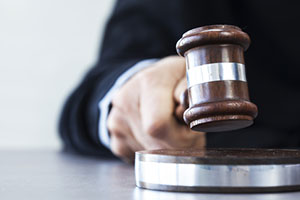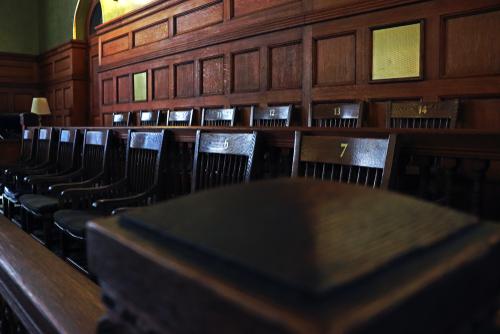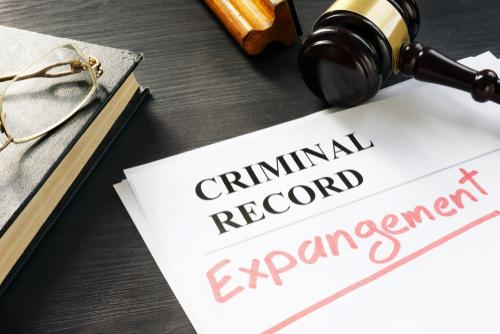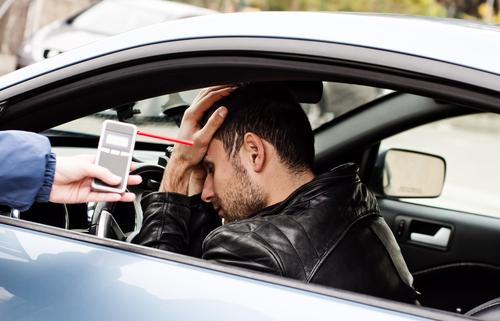Recent Blog Posts
Who Is Responsible for Injuries in a Wisconsin Boating Accident?

Spending time on the water is a common pastime in Wisconsin because of the many bodies of water throughout our state. The most common way to do this is on jet skis and other types of motorboats. Since summer is such a popular time for visitors and owners of vacation homes to visit Wisconsin, the state’s waterways become much busier and more crowded than usual. Due to this influx of people and their boats, boating accident injuries become more likely to occur.
Common Boating Accidents and Solutions
Capsizing and swamping are two of the most common types of boating accidents that can harm those in a boat and others nearby. Capsizing occurs when a boat gets turned on its side or flips upside down. This can occur if weight is unevenly distributed throughout the boat or if reckless driving is involved. Hitting large waves can also cause a boat to flip. If a boat stays upright and fills with water, this is known as swamping.
Can I Receive Compensation for Injuries on an Electric Scooter?

Electric scooters (also known as e-scooters) are a form of transportation that is becoming more and more popular in cities across the United States. While these types of scooters are not new, the business behind them has changed. Companies such as Bird have begun offering rentable electric scooters that are placed on the side of the road for anyone to use. A person can use an app to rent an available scooter, then hop on for a ride. However, since these scooters have begun to pop up on city streets and college campuses, the number of scooter-related injuries has increased significantly, and people who are injured may be unsure about their legal options.
Governor Evers Fulfills Campaign Promise, Recreating the Pardons Board
 One of recently elected Governor Evers’ campaign promises was to address pardons in the state of Wisconsin. A pardon is similar to an expungement in that it grants a second chance to individuals who have been convicted of a crime. Having a record expunged removes the offense completely from a person’s criminal record. Pardons do not have this same power, but they do give back some of the rights that are taken away from citizens after receiving a criminal conviction. If granted a pardon, an individual can once again own a gun, vote, be on a jury, hold public office, and hold various licenses that they were not eligible for as a convicted felon. While an offense may still appear in background checks, having it pardoned can help a person put a better foot forward when seeking employment opportunities.
One of recently elected Governor Evers’ campaign promises was to address pardons in the state of Wisconsin. A pardon is similar to an expungement in that it grants a second chance to individuals who have been convicted of a crime. Having a record expunged removes the offense completely from a person’s criminal record. Pardons do not have this same power, but they do give back some of the rights that are taken away from citizens after receiving a criminal conviction. If granted a pardon, an individual can once again own a gun, vote, be on a jury, hold public office, and hold various licenses that they were not eligible for as a convicted felon. While an offense may still appear in background checks, having it pardoned can help a person put a better foot forward when seeking employment opportunities.
Governor Evers recently recreated the nine-member Pardon Advisory Board to address the thousands of pardon requests that have not been attended to. Before Evers came into office, Governor Scott Walker put the pardon process to a stop in 2011. According to The Washington Post, the Governor Evers’ office has already received requests from 1,600 individuals regarding pardons.
What Steps Are Followed When Litigating a Civil Lawsuit?

Civil litigation is the legal term for a conflict being settled in court. These conflicts can be between two or more parties, and they typically involve business deals and/or monetary disputes. If the parties, also known as the plaintiff and the defendant, cannot come to an agreement themselves, they will take the case to court to have a judge or jury make a final decision. Civil litigation cases have a specific procedure that is followed to ensure that all of the parties have a fair legal hearing.
A Guide to the Litigation Process
Any legal process may seem complicated because of the use of legal jargon. However, when the procedure is broken down and explained in layman's terms, it becomes relatively self-explanatory. A civil case will typically involve the following steps:
- Complaint and Response: The process must first begin with an initial complaint from a plaintiff about the defendant. The complaint will lay out all of the issues that the plaintiff has with the defendant. The defendant will then file an answer in response to the alleged wrongdoing.
Criminal Justice Reform Bill Could Change Wisconsin Expungement Laws
 Under Wisconsin law, expungement means “to strike or obliterate from the record all references to the defendant’s name and identity.” In other words, this removes a person’s criminal past from their record. The purpose of this is to give individuals a second chance. A criminal record can follow someone for the rest of their life, especially since online tools are available that allow anyone to research a person’s background. Websites such as Wisconsin Circuit Court Access allow users to search names and find people’s criminal records, and this can affect a person’s ability to find a job, obtain housing, or apply for education, and it can also impact someone’s personal reputation and relationships. Many advocates are calling for reform of Wisconsin’s expungement system to reduce the negative repercussions faced by people who have served a criminal sentence.
Under Wisconsin law, expungement means “to strike or obliterate from the record all references to the defendant’s name and identity.” In other words, this removes a person’s criminal past from their record. The purpose of this is to give individuals a second chance. A criminal record can follow someone for the rest of their life, especially since online tools are available that allow anyone to research a person’s background. Websites such as Wisconsin Circuit Court Access allow users to search names and find people’s criminal records, and this can affect a person’s ability to find a job, obtain housing, or apply for education, and it can also impact someone’s personal reputation and relationships. Many advocates are calling for reform of Wisconsin’s expungement system to reduce the negative repercussions faced by people who have served a criminal sentence.
What Is Healthcare Fraud?

When a business faces accusations of healthcare fraud, this can have a massive impact on its bottom line, since in addition to facing fines and other consequences related to criminal charges, its reputation in the community is also likely to suffer. This type of fraud can affect consumers, providers, and insurers, and it can cause the costs of everyone’s healthcare benefits to rise. Because of these negative effects, these crimes are taken very seriously by law enforcement officials, and those who have been accused of healthcare fraud should be sure to understand the charges and the potential consequences.
What Does Healthcare Fraud Look Like in Action?
Healthcare fraud occurs when false or misleading information is intentionally submitted in order to determine the amount to be charged for healthcare benefits that a person can receive. This definition covers a wide variety of actions in the real world. Some examples include:
What Are the Benefits of a Special Needs Trust?
All parents hope that their children will be safe and happy throughout their lifetime. This concern can be a serious stressor for parents of special needs children. While some individuals with special needs can live a fully functioning life, many struggle to do everyday things without the help of another adult. Parents may fear that their child will not have a form of income to sustain themselves, and they may want to take steps to ensure that their child is provided for.
One of the best ways to create peace of mind is by forming a special needs trust. This type of trust holds and protects financial assets for the benefit of a disabled beneficiary. Many of these trusts receive assets from a legal settlement that involves the special needs child, while others are created through an estate plan. This allows parents to provide the child with assets that can be used during or after the parents’ lifetime, as well as life insurance proceeds after their death.
What Remedies Are Available in a Breach of Contract Case?
 By Law Clerk Nathan Froemming
By Law Clerk Nathan Froemming
Contracts are important for any business, and if the terms of a contract are not followed, this can have a significant impact on a company’s bottom line. If a party is not meeting their contractual obligations, you might wonder what options you have. In a breach of contract case, you may be able to seek multiple types of remedies, including:
1. Liquidated Damages
Liquidated damages are available when the contract at issue has a clause setting damages in the event of a breach. While this may seem like a straightforward provision, there are often arguments that can be made that would call into question whether liquidated damages are appropriate under the specific circumstances in your case. For example, the contract may provide for liquidated damages only under certain types of breach.
2. Compensatory Damages
Compensatory damages are awarded to the non-breaching party. The goal of compensatory damages is to put the non-breaching party in the same position they would be in had the other party performed its obligations under the contract.
How Accurate Is a Breathalyzer Test During an OWI Traffic Stop?

In Wisconsin, refusing a breathalyzer test after being arrested for suspected drunk driving can result in the suspension of your driver’s license. However, what many people do not know is that a roadside blood alcohol content (BAC) test is voluntary. Due to the danger of license suspension, many people submit to a breathalyzer test and live with the results that come from it. However, breathalyzer tests are not always 100 percent accurate, and there are ways to challenge the results in Wisconsin courts.
Tests Used By Police to Determine BAC
A breathalyzer test is a way to measure the amount of alcohol in someone’s body by taking a breath sample. In Wisconsin, a person can be convicted of drunk driving if it is determined that his or her blood alcohol content is .08 or higher. While the courts generally consider breathalyzer tests to be reliable, blood tests are widely regarded as the most reliable means to test BAC. Urine tests have also been used to measure BAC; however, those tests are often less reliable than breathalyzer or blood tests.
Who Is at Fault When a Car Accident Occurs in a Construction Zone?

You may be driving on a road in a place where you travel all the time, when suddenly the road changes in some way due to construction. Construction zones pose significant risks to motorists, because they can unpredictably change a road, and drivers may be unsure about the proper ways to navigate these changes. In addition, construction zones can create dangerous roadway conditions if care is not taken to properly set up detours or closed lanes. Due to these factors, car accidents in construction zones are common. In fact, Wisconsin sees about 2,000 work zone accidents each year.
Causes of Construction Zone Wrecks
Every construction zone is different, and there are numerous ways drivers become involved in construction zone accidents. Some of these ways include:
- Traffic may slow due to a reduction of the number of lanes of travel. An accident may occur if a driver does not notice that he or she needs to merge.

 By
By 





